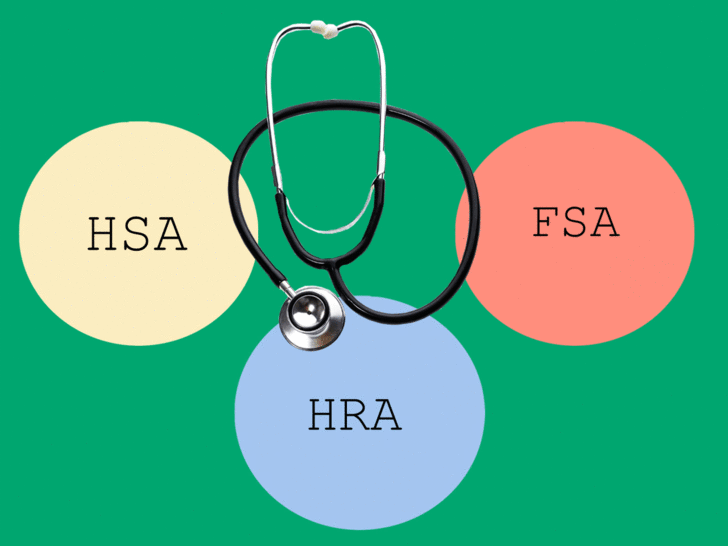By Michael Fidlow
There’s an alphabet soup of options out there for employers to offer when it comes to health care. Making sense of it takes time and patience. But with every option, the ability to pre-tax the dollar is just too good to pass by. If you’re running a company, make sure you find the right expert to guide you through this thicket of information. And if you’re an employee, don’t be afraid to enlighten your boss. (Sometimes the best way to do that is to make your boss think the good idea was his or hers.)
Flexible Spending Accounts (FSA), Health Savings Accounts (HSA), and Health Reimbursement Arrangements (HRA) are must-haves for employees who deserve options.
 All three share common traits. Each has maximum contributions allowable per annum, rollover capabilities from one year to the next, tax free withdrawals for medical expenses only (tied into Section 213(d) of the IRC). All can be offered simultaneously via proper design. These accounts may be handled in-house or by a third-party administrator – removing much of the burden from employer responsibilities.
All three share common traits. Each has maximum contributions allowable per annum, rollover capabilities from one year to the next, tax free withdrawals for medical expenses only (tied into Section 213(d) of the IRC). All can be offered simultaneously via proper design. These accounts may be handled in-house or by a third-party administrator – removing much of the burden from employer responsibilities.
The glaring negatives of each type of plan are: who may not participate, administrative expenses, and possible COBRA implications.
Let’s start with the most common funding vehicle – the Flexible Spending Account. In general, this may be funded by both employee and/or employer. FSA’s reduce taxable income for the employee and reduce FICA & FUTA for the employer. Of course, the “use it or lose it” concern comes into play but, what employees may do, is simply take the conservative approach. You place into the account what you know history has dictated with your healthcare spending. You are probably not a seer, so don’t fund what you don’t know. The employer may opt for a grace period or carryover provision – either one designed to alleviate this concern. The FSA also allows for pre-tax day care expenses, which is a much easier amount to determine – allowing for comfortability when taking advantage of this benefit.
The next most common funding vehicle is the Health Savings Account. This account must be coupled with a High Deductible Health Plan to be opened. The employee owns the funds, can request qualified reimbursements at any time throughout the existence of the account, may invest the money in the market, can have anyone contribute pre or post tax, and never need worry about “using it or losing it”. After age 65, remaining money in the account will no longer be penalized if used for something other than medical expenses – but taxes would be incurred. Many people refer to an HSA as an IRA in the medical world. When properly explained by a knowledgeable expert, this type of account has advantages for both healthy, and unhealthy, participants.
Finally, we come to the Health Reimbursement Arrangement. This funding is born by the employer only, they set the annual amount to be offered, and provides a great way to dip company toes into the self-insured environment. Typically, the employer will save premiums on their health insurance when increasing deductibles for various benefits within the plan. By offering an HRA, the employer picks which benefits the employee can access the HRA for, often limiting this to hospitalization and outpatient surgeries. The employer recognizes savings overall because they are the least utilized benefits by an employee. The employee is content as the funds are designed to cover the deductible or, in many cases, a large portion of the deductible. Also, the employer does not fund the account until a claim is adjudicated which translates to no loss in present cashflow. The employee is given tax free treatment for medical reimbursements and the employer is entitled to tax deductibility for qualified expenses.
There is no question that other pros and cons aren’t listed within this article, but if you look hard enough at these accounts, I am convinced that at least one of them will offer an advantage to your workforce. If you are not performing due diligence when it comes to pre-tax FSA, HSA, and HRA’s, essentially being a conduit of savings for your organization, I urge you to educate yourself and take another look.
Michael Fidlow is president of Strategic Employer Planning Group, LLC a group health benefits consulting firm for small companies in NY/NJ that employ 2-49 employees.










